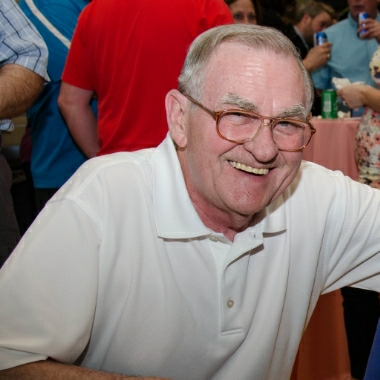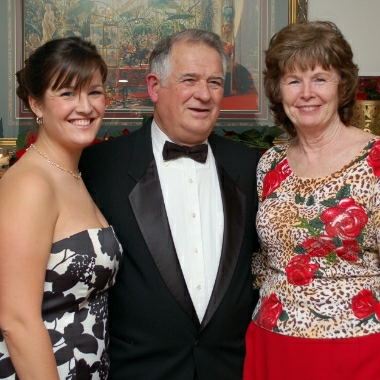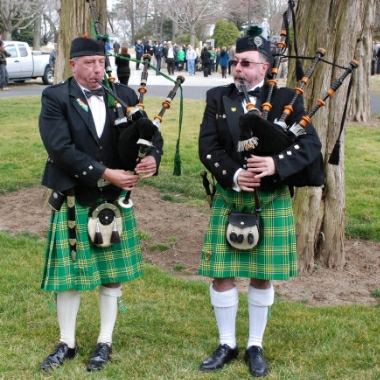The owner of a famed Irish tap room where many local Irish musicians got their start, a Donegal native who headed the Philadelphia Ceili Group, the Donegal Association and is on the board of the newest Gaelic sports club, and twin brothers who took up the cause of 57 Irish immigrants who died 178 years ago while working on the Pennsylvania Railroad in Montgomery County, have been named to the Delaware Valley Irish Hall of Fame.
The Hall of Fame board chose the four winners—Emmett Ruane, Jim McGill, and William and Frank Watson—on Tuesday night and established a new award named for Commodore John Barry, USN, the Wexford-born father of the American Navy. Barry and the other four will be honored at a dinner on November 9 at the Irish Center, 6815 Emlen Street, Philadelphia.
Emmett Ruane is the former owner of Emmett’s Place, a tiny taproom in Northeast Philadelphia that, on the weekends, was “packed to the gills” with lovers of Irish music. It was like “the Northeast’s answer to cheers, where everybody knows your name,” said radio host Marianne MacDonald, who was one of the many dancers who frequented Emmett’s before it closed in 2008.
There were often so many dancers at the tiny pub, “we would dance out on the sidewalk,” wrote Ed Quigley in his nomination letter.
Every musician of a certain age played at Emmett’s Place at one time or another—as did many of the younger ones. “Emmett would always take a chance on a young Irish band– he booked everyone young and old,” said Bill Donohue, Jr. of The Shantys in his nomination letter. “Every Irish musician in Philadelphia cut their musical teeth at his taproom.”
“For those of us from Ireland, he gave us a home away from home,” said musician Patsy Ward, who also wrote a nominating letter for Ruane.
Cathy Moffit, whose father, Tommy, was a regular at Emmett’s, said that Ruane also had a behind-the-scenes life. “Emmett has been very generous to those in time of need and humble about his many hidden acts of kindness,” she wrote.
Jim McGill was born in Ardara, County Donegal, and emigrated to the US in 1958 at the age of 17. He served as president—sometimes more than once—of the Donegal Association and the Philadelphia Ceili Group (where he has been a member for 50 years and was the youngest president ever). According to his youngest daughter, Rosaleen, he “has made the Irish Center his home away from home.” He is a shareholder in the club.
“People from all aspects of Irish heritage and culture know him as a friendly, humorous and friendly smile that will answer any Irish related question or can direct you to the person who can,” she wrote in her nominating letter. “My dad has influenced me greatly. . .He has shown me how unique and diverse Irish culture is, and instilled the drive to share its beauty with the world,” wrote Rosaleen, who, like her father, is a singer and sits on the board of the Philadelphia Ceili Group.
McGill, who played Gaelic football himself (and was one of the players in the movie, “The Molly Maguires,” starring Sean Connery which was filmed in Pennsylvania) is vice chairman of the Glenside Gaelic Club, the newest youth league in the Philadelphia area.
William Watson, a history professor at Immaculata University, and his twin brother, the Rev. Frank Watson, are being honored for their dogged pursuit of the truth in the death of 57 Irish immigrant railroad workers in 1832 whose mass grave the Watsons and their volunteer archeologists—mainly Immaculata students– discovered in 2002. While sorting through their grandfather’s papers, Frank Watson discovered documents from the Pennsylvania Railroad detailing the deaths and burial of the 56 men and one woman during a cholera epidemic.
The subsequent dig uncovered artifacts such as a Derry pipe stem and bowl engraved with a harp flag and, in 2009, the first body was recovered, believed to be that of 19-year-old John Ruddy of Inishowen, County Donegal. The Watsons raised money to bury Ruddy’s remains in Donegal, in a plot donated by Irish Center President Vincent Gallagher. Six other bodies recovered from the grave—some exhibiting evidence of violence—were buried in a plot donated by West Laurel Hill Cemetery.
The Watsons are now working toward recovering the other 50 bodies which are buried near the tracks at the Duffy’s Cut area of Malvern. Money raised at a recent fundraiser will go toward the exhumation and the completion of DNA testing.



